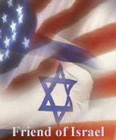Reclaiming the Terms.
Perhaps it might seem strange to some that someone like me would attempt to write an article on the subject of reclaiming the English language terminology. After all, English is not my native language: I am a naturalized American, originally from the former Soviet Union. On the other hand, maybe that is precisely why misuse of the English political terminology bothers me that much: it conflicts with the way I learned English back in high school and with what I learned about different ideologies over the years.
For now, I'd like to reclaim a term most frequently misused by people on both sides of political spectrum in this country. This term is "Liberalism", along with people characterized as "liberals".
Here is what Merriam-Webster Online Dictionary has to say on the subject:
"1: the quality or state of being liberal
2 a often capitalized: a movement in modern Protestantism emphasizing intellectual liberty and the spiritual and ethical content of Christianity; b: a theory in economics emphasizing individual freedom from restraint and usually based on free competition, the self-regulating market, and the gold standard; c: a political philosophy based on belief in progress, the essential goodness of the human race, and the autonomy of the individual and standing for the protection of political and civil liberties; d capitalized: the principles and policies of a Liberal party."
So, there are 2 main definitions. The first one basically states that those who believe the ideology of Liberalism are generally called "liberals". The second one actually deals with the term itself. Let's look at it. 2a says: "a movement in modern Protestantism emphasizing intellectual liberty and the spiritual and ethical content of Christianity". Does this really look like something people of the Left, often described as "liberals", believe in? First of all, this ideology seems to have a religious component, Christian to be exact. This is often an anathema to the leftists. (For the record, I have absolutely no religious interest in the subject: I happen to be a very non-religious Jew). As for the intellectual liberty, how can it coexist with political correctness, always practiced by the Left and always defended by the Left? In fact, there is no intellectual liberty on the Left. Those who disagree with the "party line" are usually wilified. The examples are too numerous to list here, but most recent one is what is happening to Senator Lieberman. On the other hand, on the Right nobody would ever have a problem with the religious component of the ideology, as long as the actual religion is not being imposed on anybody. The fact that the religion is not being imposed on anybody is pretty obvious: it is just a philosophical component that has its origins in theology. The intellectual liberty is also found on the Right: the absence of political correctness on the Right ensures that. Indeed, there is a great variety of opinions on different subjects that is often express by people who are generally considered to be on the Right. Thus, it seems that at least the first definition of liberalism in the dictionary applies to the Right more than to the Left. Let's continue.
2b says: "a theory in economics emphasizing individual freedom from restraint and usually based on free competition, the self-regulating market, and the gold standard". Wow! That sounds like good old capitalism, hardly bearing any similarity to any kind of re-distribution of wealth ideas usually advocated to various extend by so called liberals of the Left. Quite the opposite. This kind of economic theory is advocated by the Right. So, the second part of the definition also applies to the people on the Right, otherwise known as conservatives.
2c says: "a political philosophy based on belief in progress, the essential goodness of the human race, and the autonomy of the individual and standing for the protection of political and civil liberties ". This part at a first glance looks like something that could be claimed by the Left. But let's analyze it further. If liberalism based on belief in progress, I guess we need to define "progress".
If progress defined as technological advancement, then capitalism seems to be the answer: the Capitalist West is much more technologically advanced than Socialist (until very recently) East. Former Communist countries, like Russia, are catching up now, thanks to their new-found capitalism. Furthermore, there seems to be much more technological innovation in much more capitalist United States than in pretty socialist Europe. There is no European Intel or Microsoft. Even Linus Torvalds, the Finnish inventor of Linux, lives in the US.
If progress is defined as socio-economic progress, then again capitalism seems to be the answer. The standard of living of those considered to be poor in the US is much higher than that of the average person living under Socialism. And again, the standard of living of the average person in Russia, for example, is now improving, thanks to capitalism. Also, the capitalist United States created a society where person's racial or ethnic origin is absolutely irrelevant to everyday life: only person's abilities matter. That is quite a contrast with ethnic-based European societies. Just look at France. Thus, socio-economic progress also promoted by policies advocated by the Right.
The belief in the essential goodness of the human race does not contradict the Rightist outlook on life. For example, I personally believe that even people who do evil for the most part rationalize it that they actually do it for the greater good. The easiest example of people like that would be true believers in Communism. They did a lot of bad stuff, but they sincerely believed that it was for the greater good. It does not excuse them, but this is just an example of basically good people doing evil. But my point is that this particular part of liberal philosophy applies equally to the Left and the Right. In fact, maybe it applies more to the Right, since the leftists do believe in inherently evil capitalists.
Autonomy of the individual is the essence of the Rightist political philosophy. People on the Right always praise rugged individualism of American capitalists. It is the Left that tends to lump people into groups. As for the protection of political and civil liberties, both sides claim to believe in that. I happen to believe that the claim on the Right is more supported by facts. The Right usually defends the freedom to exercise religion, including freedom to offend and be offended. It is the Right who defends the right to keep and bear arms, the ultimate protection of civil liberties. And it is the Right who believes that the civil liberties are worth fighting for anywhere in the world. This is actually the only traditionally liberal belief that historically was not part of the rightist philosophy. The Right in this country was traditionally isolationist. But even isolationism shifted almost completely to the Left (except for a few so called paleo-conservatives, like Pat Buchanan).
Finally, we come to the 2d of the dictionary definition of liberalism: "the principles and policies of a Liberal party". But there is no party called "Liberal" in the US. So it comes down to which of the 2 major parties the definition of liberalism applies to. Even though the Democrats are usually called "liberals", I think the the dictionary definition of liberalism applies to the modern Republican Party much more.
So, if the dictionary definition of liberalism is taken as a basis, we see that true liberalism is actually found on the Right. Some people might say: "But why is it important? Who cares about dictionary? We call ourselves 'conservatives', our opponents call themselves 'liberals', let's now argue about issues". Well, I think it is very important, because now we live in an upside down world. In this crazy world those who try to force political correctness into political debate are called "defenders of freedom of speech". People who try to ban public displays of religious beliefs are considered to be "defenders of the 1st Amendment". The opponents of the race-based quotas for university admissions and government contracts are called "racists". Even the opponents of an organization called "La Raza" are called "racists". And that for merely pointing out that "La Raza" is, as the name implies, a racist organization. Those who think it is right to confront fascism wherever it is, by force if necessary, are called "fascists". Supporters of Israel, usually on the Right, are routinely called "Nazis", even though the other side of that particular conflict has well documented historical ties to Hitler's Nazis and even now proudly adopts the Nazi symbols for themselves, as seen in this Reuters photograph (also shown here):
Reuters - Tue May 9, 11:50 AM ET
Palestinian police officers salute during a graduation ceremony in the West Bank town of Jenin May 9, 2006. Two Fatah supporters were injured in renewed clashes in the Gaza Strip on Tuesday between the group and Hamas supporters, Palestinian witnesses said. REUTERS/Mohamad Torokman
Even the Nazi and fascist ideologies are consistently characterized as Right-wing, despite the fact that Nazism is short for National-Socialism, Socialism being important part of it. The Hitler's party program, as well as Mussolini's Manifesto, reads like a summary of policies that the Left in this country routinely advocates. The similarities between Hitler's Germany and Stalin's Soviet Union were staggering. My late grandfather told me many times that after the infamous Molotov-Ribbentrop Pact was signed the Soviet newspapers published editorials praising friendship forever between two socialist countries. Grandpa wrote in his diary that he and his co-workers were almost relieved when the Germans attacked on June 22, 1941, since they at least ended up on the good side of that global conflict. Minimal research would prove that Nazism is a leftist totalitarian ideology, similar to Soviet Communism, yet people call it "far-right" solely based on the fact that Stalin and Hitler did not trust each other enough to make an alliance and instead ended up fighting each other.
Before we can move ahead we need to stand our world back on its feet. Our leftist opponents effectively use what is known as "turnspeak". And we continuously just take it. We debate on their terms. We proudly call ourselves "conservatives" and them "liberals", even though they are anything but liberals. Just recently a talk show host substituting for Rush Limbaugh was talking about some nut case professor in Wisconsin who was teaching the 9/11 was done by US Government. He kept saying that the Left came to that professor's defense, claiming "academic freedom". And in order to prove the sanity of the Right he said that the Right would not be defending some Holocaust denier. And that just infuriated me: why would anyone associate the American Right with Holocaust deniers? In fact, now it is the Left who often takes side of Holocaust deniers. We keep trying to be civil, and whenever they accuse us of something, we just take it or just put up some feeble defense saying: "No, you are wrong to say that". Instead, anytime they throw some accusations at us, we should say: "This thing you are accusing us of, that actually what you do, that's what you are, that's who you are!" I wish I could see the so-called conservative commentators proudly proclaim that it is they who are true liberals, and so-called liberals are anything but liberals. I personally purposefully avoid calling my political opponents "liberals". Instead, I proclaim myself a true liberal. I hope I will not be the only one on the Right who does that.


















No comments:
Post a Comment